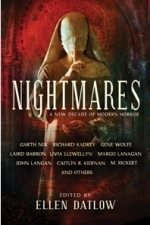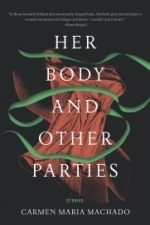Zuky the BookBum (15 KP) rated Nightmares: A New Decade of Modern Horror in Books
Mar 15, 2018
NOW AVAILABLE IN THE UK!
I decided that instead of rating this book overall, it would be better to rate each individual story, so that’s what I’ve done. Obviously I had to rate the overall book so I actually calculated the average of all the ratings lol.
<b><u>Shallaballah</b></u> by Mark Samuels
<i>1 star</i>
Not a good start to the book for me. I was over the stitched up face appearance, creepy hospital, shady operations kind of horror story long ago, so this did pretty much nothing for me. Yes there were creepy elements to it but not enough. I also get what it was trying to do with the whole vanity, television thing, but it didn’t really work and so for me, added nothing to the overall plot.
<b><u>Sob in the Silence</b></u> by Gene Wolfe
<i>3 stars</i>
This was a pretty good creepy story, I much prefer stories that don't really have any paranormal elements to them and are more about the madness of the human brain. This short story had a bit of both to it so it was much preferable to the last! Didn't like the weird abrupt ending though, it felt like the story had been cut short.
<b><u>Our Turn Too Will One Day Come</b></u> by Brian Hodge
<i>4 stars</i>
This definitely had my skin crawling a bit. I love this kind of horror story that incorporates creatures and family secrets, kind of gave me The Village vibes… Is that the name of that film? Anyway, yes, great short!
<b><u>Dead Sea Fruit</b></u> by Kaaron Warren
<i>3 stars</i>
This short was pretty good, the Ash Mouth Man was pretty freaky but the writing was a bit all over the place and I felt too much was squeezed into such a small story. I'd love to read a full length story about this Ash Man, that would definitely be disturbing to read!
<b><u>Closet Dreams</b></u> by Lisa Tuttle
<i>4 stars</i>
Really well written and completely terrifying! I hate abduction stories so much because it could happen to anyone. It's not like the demonic ghost stories that you choose to believe or not believe, men who rape and steal little girls are <b>real.</b> The ending was… Predictable… Done before… Boring… But the rest of it was good enough to warrant it 4 stars!
<b><u>Spectral Evidence</b></u> by Gemma Files
<i>1 star</i>
?????????????????????????????????????????????????????????????????
I didn’t like the way this was set out, very frustrating to read on a Kindle! Also, I didn’t really get it, it was so all over the place I forgot what was happening previously.
<b><u>Hushabye</b></u> by Simon Bestwick
<i>2 stars.</i>
I wanted to like this one but there was too much missing from the story, maybe it was meant to be mysterious but in my eyes it just felt unfinished. Like what was the man sucking out of the children? And what really happened to Hardiman? Also I thought the narrator was a woman until we finally learnt his name was Paul, don’t know why, I just imagined him that way.
<b><u>Very Low-Flying Aircraft</b></u> by Nicholas Royle
<i>3 stars</i>
I’m not really a big fan of war based novels / stories so from the get go I knew I wasn’t going to get on that well with this story but it wasn’t so bad. I didn’t feel like this story explained itself enough or maybe it did and I just didn’t get it? Like why did it matter that Frankie looked like Victoria and why did Flynn go to the clinic? Also, I didn’t think it of a horror story really, though it was scary and horrible, it didn’t give me the heeby-jeebys like some of the others have done.
<b><u>The Goosle</b></u> by Margo Lanagan
<i>2 stars</i>
Seriously, seriously grotesque. If you have a weak stomach, <i>avoid this.</i> A very peculiar branch off the traditional Hansel and Gretel story we all know. This isn’t my kind of horror at all. I much prefer scary, mysterious human crime and occasionally a paranormal story. Torture porn is not at all my thing. This was very well written though, so props to Lanagan for that.
<b><u>The Clay Party</b></u> by Steve Duffy
<i>4 stars</i>
Again, not exactly what I’d classify as a horror story, but a great read nonetheless. Excellently written and enjoyable the whole way through, up until the end… the ending definitely wasn’t my kind of style so that was disappointing for me personally, but I’m sure others would love it!
<b><u>Strappado</b></u> by Laird Barron
<i>3 stars</i>
Definitely one of the strangest of the shorts in this novel. I thought it was excellently written but I didn’t quite get it? Maybe I was just having an off day when I read this but it didn’t really do anything for me.
<b><u>Lonegan’s Luck</b></u> by Stephen Graham Jones
<i>4 stars</i>
This is one of those stories I don’t know why I like. I never used to be into these kinds of rural town, religious apocalyptic kind of books, but ever since reading Mammoth, I’ve begun to enjoy reading them. Admittedly this had me a little confused to begin with, there were what felt like a lot of characters, but in the end none of the mattered anyway, they were just there to set the scene.
<b><u>Mr Pigsny</b></u> by Reggie Oliver
<i>3 stars</i>
I feel like I’ve read this book a million times. It’s one of those stories that's been redone time and time again with just slight changes here and there. It isn’t a bad plot per say, I certainly enjoyed it, it just had nothing unique about it.
<b><u>At Night, When the Demons Come by</b></u> by Ray Cluley
<i>4 stars</i>
One of the longer stories in this book but also one of the best. It had a pleasing twist to it and some interesting characters. I guess I quite like the whole apocalyptic feel when it comes to stories. I personally don’t feel this one was a horror story, more like a fantasy thriller.
<b><u>Was She Wicked? Was She Good?</b></u> by Mary Rickert
<i>4 stars</i>
This was a sad horror story, but in a way, it was also quite beautiful. I really liked the plot, it was something quite different to all the others in this collection and I thought the way it was written flowed well. Enjoyable short story!
<b><u>The Shallows</b></u> by John Langan
<i>2 stars</i>
I liked how this was written but I didn’t get it? I got bored halfway through it too, it was a half an hour read and I just couldn’t understand it so I skimmed the last 10 minutes or so. Yawn.
<b><u>Little Pig</b></u> by Anna Taborska
<i>3 stars</i>
Meh. This was well written and very different to the rest of the stories in this collection but was it a horror story? No. It was tragic, but not scary. Disappointing because whenever I see the word “pig” in relation to something “scary” I think of AHS.
<b><u>Omphalos</b></u> by Livia Llewellyn
<i>3 stars</i>
<b>TRIGGER WARNING: SEXUAL ABUSE</b>
This story was definitely very unique to the rest of the stories in this collection in the terms that this was a horror story that focused more on the real life horrors of families rather than made up monsters and ghouls. This story isn’t for the faint-hearted, it was horrific and gruesome and very upsetting. It wasn’t the best story in the collection when it came to plot or writing style, but it did bring out strong emotions in me, which other stories have been unable to do.
<b><u>How We Escaped Our Certain Fate</b></u> by Dan Chaon
<i>5 stars</i>
I liked how this was a different take on a classic zombie story - <b><i>”It wasn’t the end of the world… of course, a bite would infect you, but they weren’t terribly aggressive, in general.”</b></i> This was by far my favourite story in the entire book, it was so sad and emotional. It was beautiful.
<b><u>That Tiny Flutter of the Heart I Used to Call Love</b></u> by Robert Shearman
<i>4 stars</i>
Creepy, creepy, creepy. Dolls terrify me thanks to modern horror, although, really, I’ve always felt unsettled by them. Enjoyable story though. Poor Julian.
(This story almost had my name in it! “Suki” is close enough to Zuky.)
<b><u>Interstate Love Song (Murder Ballad No.8)</b></u> by Caitlin R. Kiernan
<i>3 stars</i>
Hmm, why did the shorts at the end of this book get all meaningful and loved up? I think that kinda ruined this for me. Granted it was disturbed and pretty grotesque at times but sadness of the ending ruined that creepy effect of the book and just left this kind of hanging in the space between horror and tragedy.
<b><u>Shay Corsham Worsted</b></u> by Garth Nix
<i>4 stars</i>
This was an interesting story and I liked our harsh but caring main character, Sir David. I wish this story was a little longer so we could find out more about Shay because I feel the missing backstory left this plot wide open. Enjoyable nonetheless.
<b><u>The Atlas of Hell</b></u> by Nathan Ballingrud
<i>3 stars</i>
I really enjoyed this to begin with though I thought it had a little David Wong influence, a writing style I’m not into. All was going well for this story until I got towards the end of it, where it completely lost me. Whether this is down to the annoying man sat on the train next to me, speaking into his phone at 32596 decibels, or just because the plot went AWOL, we’ll never know.
<b><u>Ambitious Boys Like You</b></u> by Richard Kadrey
<i>4 stars</i>
I like these kinds of creepy stories! They’re not particularly unique anymore, because they’ve been done so many different times in so many different, but similar ways, but they’re still fun to read. The old man was especially disturbing just because he was so witty and chilled out. I liked that this story had elements of humour to it, it made a nice change to the more recent emotion filled stories.
I’d like to thank Netgalley and Tachyon Publications for giving me the opportunity to read this in an exchange for an honest review.
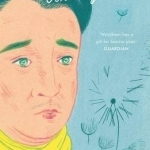
The Seeds of Time
Book
In this thrilling collection of stories, John Wyndham, author of the acclaimed classics The Day of...
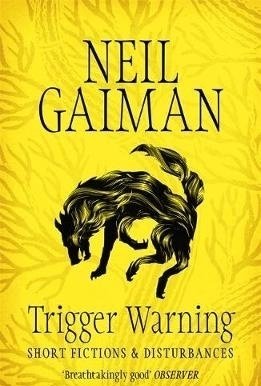
Trigger Warning: Short Fictions and Disturbances
Book
In Trigger Warning, global phenomenon and Sunday Times bestselling author Neil Gaiman returns to...

The Diary of a Madman, The Government Inspector and Selected Stories
Book
Nikolai Gogol's short fiction, collected here as The Diary of a Madman, The Government Inspector and...
Kristin (149 KP) rated The Complete Knifepoint Horror in Books
Dec 7, 2018
"The Complete Knifepoint Horror" is a collection of horror short stories that covers all sorts of bases, from ghosts to zombies to cults. I found this book to actually be pretty scary. I tend to do most of my reading at night, and so I started this book around 11pm-12am. By around 2am, at the story of Seacrist Elementary School, I started to hear "bumps in the night," as did my dog, and it was at that point that I decided night-reading might not have been such a good idea. However, I did not heed that decision, and the next night, the same thing happened. I would definitely recommend this book to anyone who likes a good scare, and especially to those with varied tastes in their horror genres.
The only reason I denoted a star (and wish it could have only been a half-star) is the author's stylistic decision to keep everything lower-case with no paragraph separation. Perhaps it's just me, but I found it a little hard to read, and there were several occasions where I had to go back and read over certain portions because I had ran two sentences together and was confused. Other than that, this was an absolutely wonderful collection of horror, and I would definitely read it again. Although, during the day, this time.
4 1/2 stars.
Lou Grande (148 KP) rated Her Body and Other Parties: Stories in Books
Jul 17, 2018
At its heart, Her Body and Other Parties is about women--especially queer women. Machado brings something of herself into each of these stories, or so she has said. The storytellers are often unreliable, but never in a degrading or dismissive way. We see stories overlapped with stories, creating intricate layers of narrative. This is not a book for a casual experience. It demands your attention, and it's good enough to deserve it. A masterful blending of prose, horror, comedy, and magic realism, Her Body and Other Parties will be read in universities for years to come. Mark my words!
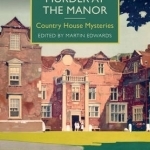
Murder at the Manor: Country House Mysteries
Book
The English country house is an iconic setting for some of the greatest British crime fiction. Short...
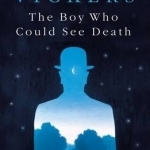
The Boy Who Could See Death
Book
From Salley Vickers, bestselling author of Miss Garnet's Angel, comes The Boy Who Could See Death,...
Haley Mathiot (9 KP) rated Girl Meets Boy: Because There Are Two Sides to Every Story in Books
Apr 27, 2018
Instead I got a very strange and rather awkward mix of sex-addicts, homosexuals, transgender, and native Americans.
I'm not saying I don't like those stories, I'm just saying I wasn't expecting it.
The above reasons are not why I didn't like the stories: those are just facts about the characters. The stories themselves just didn't seem to connect to me, I couldn't relate to any of them. Maybe it's because I'm one of those weird girls with a completely functional romantic relationship, but a lot of the content in this book was just like "uh… why are they acting like that?"
Anyway, it felt awkward. that's the only word I can use to describe it. Some of them were good, some of them sucked. Most of the writing was mediocre.
I guess all I can say is… this is probably the worst short story collection I've ever read. Sorry, I wanted to like it… It was just awkward.
*This review is copyright Haley Mathiot and Amazon Vine*
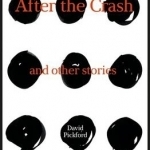
After the Crash: And Other Stories
Book
David Pickford's After the Crash and other stories is a collection of nine short stories that will...
